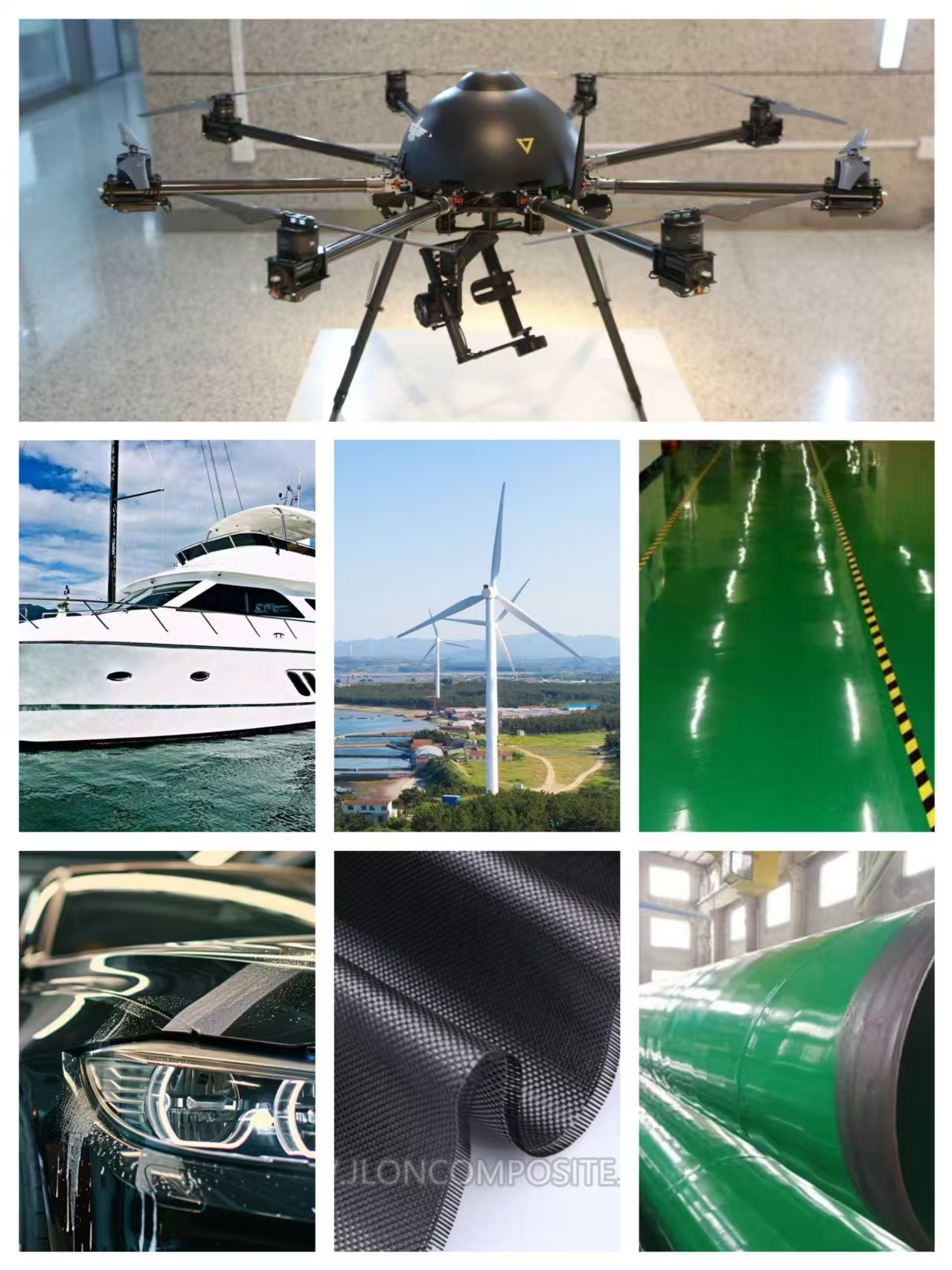TDS of Epoxy Resin
Introduction of Epoxy Resin
Epoxy resin is a class of high-performance thermosetting polymers renowned for their exceptional versatility, strength, and durability. Unlike thermoplastics that melt when heated, epoxies undergo an irreversible chemical reaction called "curing."
Advantages of Epoxy Resin
Epoxy resins are chosen for a wide range of demanding applications due to their superior combination of properties:
Exceptional Adhesion: They bond tenaciously to a vast array of materials including metals, concrete, glass, wood, and many plastics, making them premier industrial adhesives.
High Mechanical Strength & Toughness: Once cured, epoxies exhibit excellent tensile strength, compressive strength, and resistance to impact and fatigue, making them ideal for structural applications.
Superior Chemical and Solvent Resistance: They are highly resistant to degradation from acids, alkalis, solvents, and other harsh chemicals, protecting surfaces in corrosive environments.
Excellent Electrical Insulation: Epoxies possess high dielectric strength and insulating properties, making them the material of choice for protecting electronic components.
Durability and Dimensional Stability: The cured resin is highly resistant to wear, moisture, and weathering. It also maintains its shape and size well under stress and across temperature fluctuations.
Versatile Formulation: Their properties can be finely tuned for specific needs by altering the resin and hardener chemistry, adding fillers, or modifying additives to achieve desired flexibility, viscosity, or cure time.
Applications of Epoxy Resin
The unique advantages of epoxy resins make them indispensable across numerous industries:
Coatings & Flooring: Used in high-performance industrial floorings, marine paints, and anti-corrosive coatings for metal structures (e.g., ships, bridges, pipelines) due to their durability and chemical resistance.
Adhesives: Formulating strong, durable bonds in construction (e.g., securing rebar), automotive (e.g., bonding brake components), and aerospace industries.
Electronics & Electrical Systems: Used for encapsulation and potting to protect delicate circuits, transformers, and insulators from moisture, dust, and vibration. They are the primary material for manufacturing printed circuit boards (PCBs).
Composite Materials: As a matrix material combined with fibers like fiberglass, carbon fiber, or Kevlar to create high-strength, lightweight composites for aerospace components, automotive parts, wind turbine blades, and sports equipment (e.g., skis, bicycle frames).
Construction: Used in repair mortars, grouts, and anchoring systems to restore and strengthen concrete structures.
![Epoxy Resin]()
Package of Epoxy Resin
![Epoxy Resin (17)]()
![Unsaturated Polyester Resin UPR 04_副本]()
Epoxy Resin Package
![Unsaturated Polyester Resin UPR factory 02_副本]()
Epoxy Resin Package
FAQs of Unsaturated Polyester Resin UPR For SMC/BMC
Q1.Can your company customize products?
A: Yes, We usually discuss with customers and help them find solutions.
Q2. How can I get a sample from you to check quality?
A: Usually a sample will be prepared within one week after specification agreed.
Q3. What about your delivery time? Can we receive our goods on time?
A: Usually around 2-3 weeks after order confirmed. Exact delivery time depends on order quantity and Off-season/ busy season.
Q4. What is the Guarantee to buy your products? How to resolve quality complaints?
A: Offer TDS of each lot of production for confirmation before delivery.Once you have any quality problem, you can provide samples /pictures and test data. We will give you feedback in short time. If the quality problem confirmed, we will discuss about compensation with you.
Q5.What are your terms of payment?
A: Usually we do EXW, FOB, CIF and DDU
English
العربية
Français
Русский
Español
Português
Deutsch
italiano
日本語
한국어
Nederlands
Tiếng Việt
ไทย
Polski
Türkçe
Bahasa Melayu
Filipino
Bahasa Indonesia
magyar
Română
Čeština
қазақ
Српски
हिन्दी
فارسی
Slovenčina
Slovenščina
Norsk
Svenska
українська
Ελληνικά
Suomi
Հայերեն
עברית
Dansk
اردو
বাংলা
Hrvatski
Afrikaans
Gaeilge
Eesti keel
Māori
नेपाली
Oʻzbekcha
latviešu
Azərbaycan dili
Беларуская мова
Български
ქართული
Kurdî
Кыргызча































































































